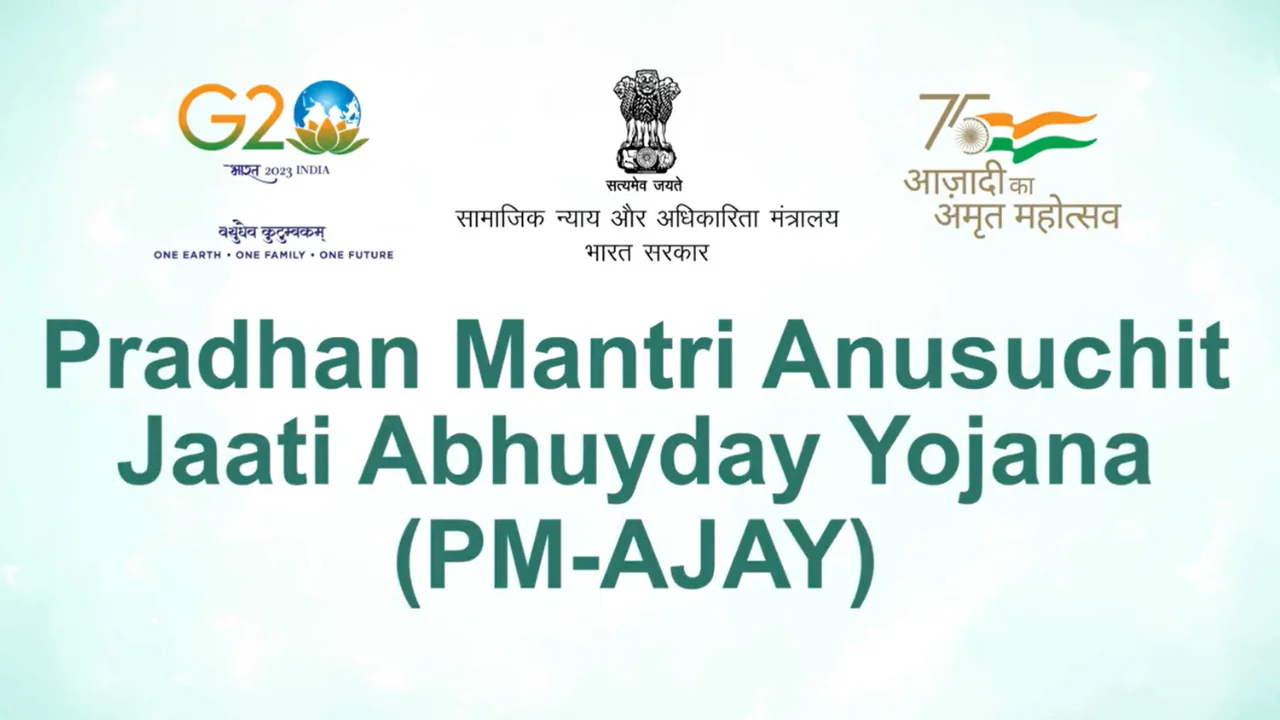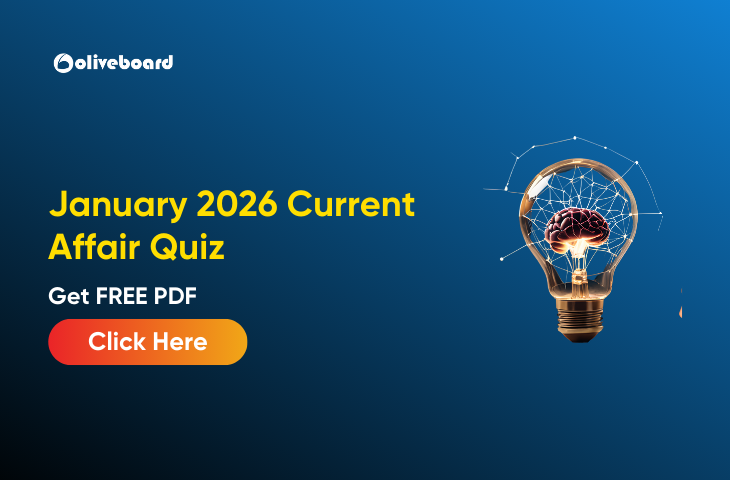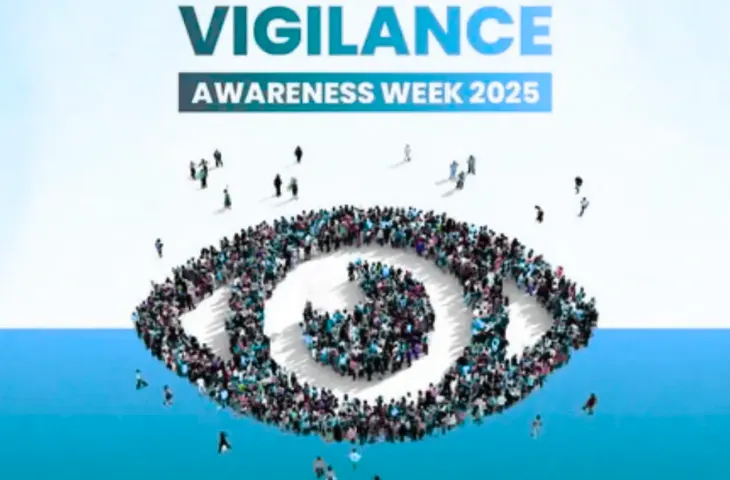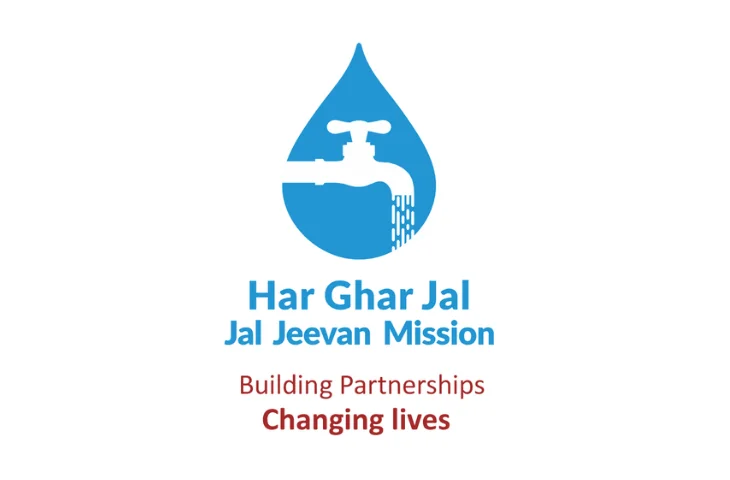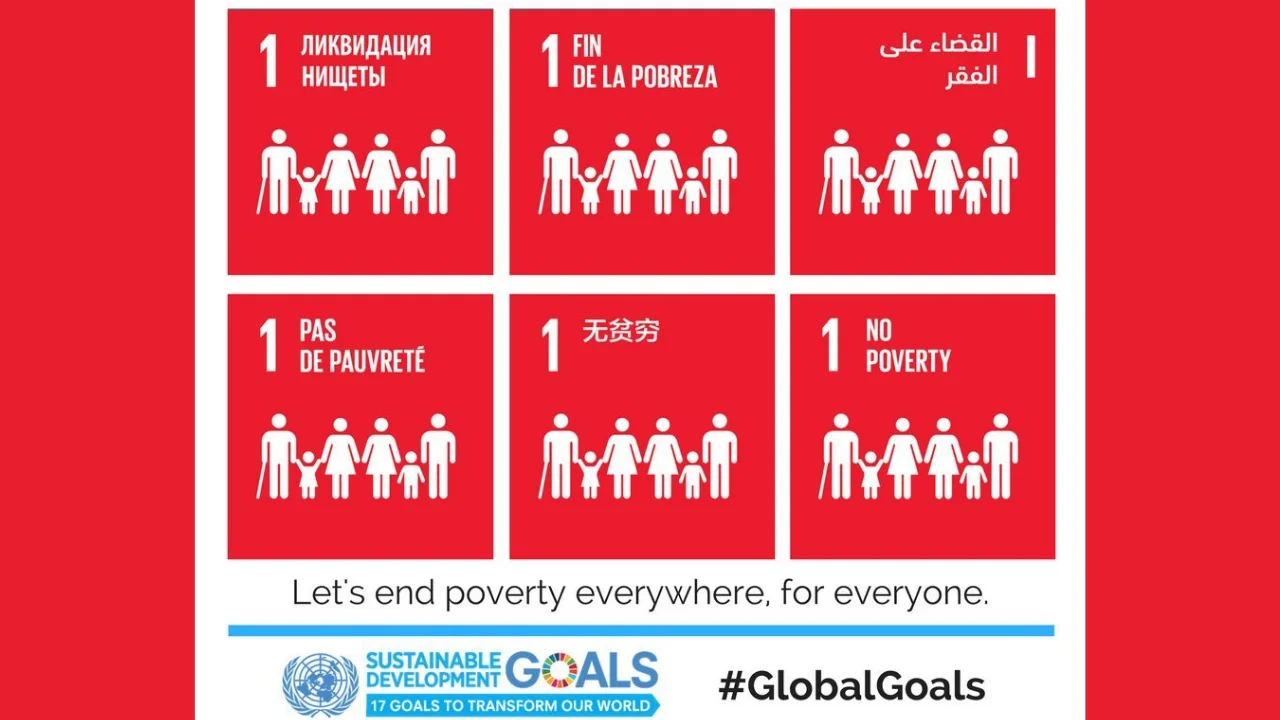The Pradhan Mantri Anusuchit Jaati Abhuyday Yojana (PM AJAY) is a consolidated scheme that emerged from the merger of three centrally sponsored schemes. These schemes include the Pradhan Mantri Adarsh Gram Yojana (PMAGY), the Special Central Assistance to Scheduled Castes Sub Plan (SCA to SCSP), and the Babu Jagjivan Ram Chhatrawas Yojana (BJRCY). PM AJAY has been in operation since the fiscal year 2021-22.
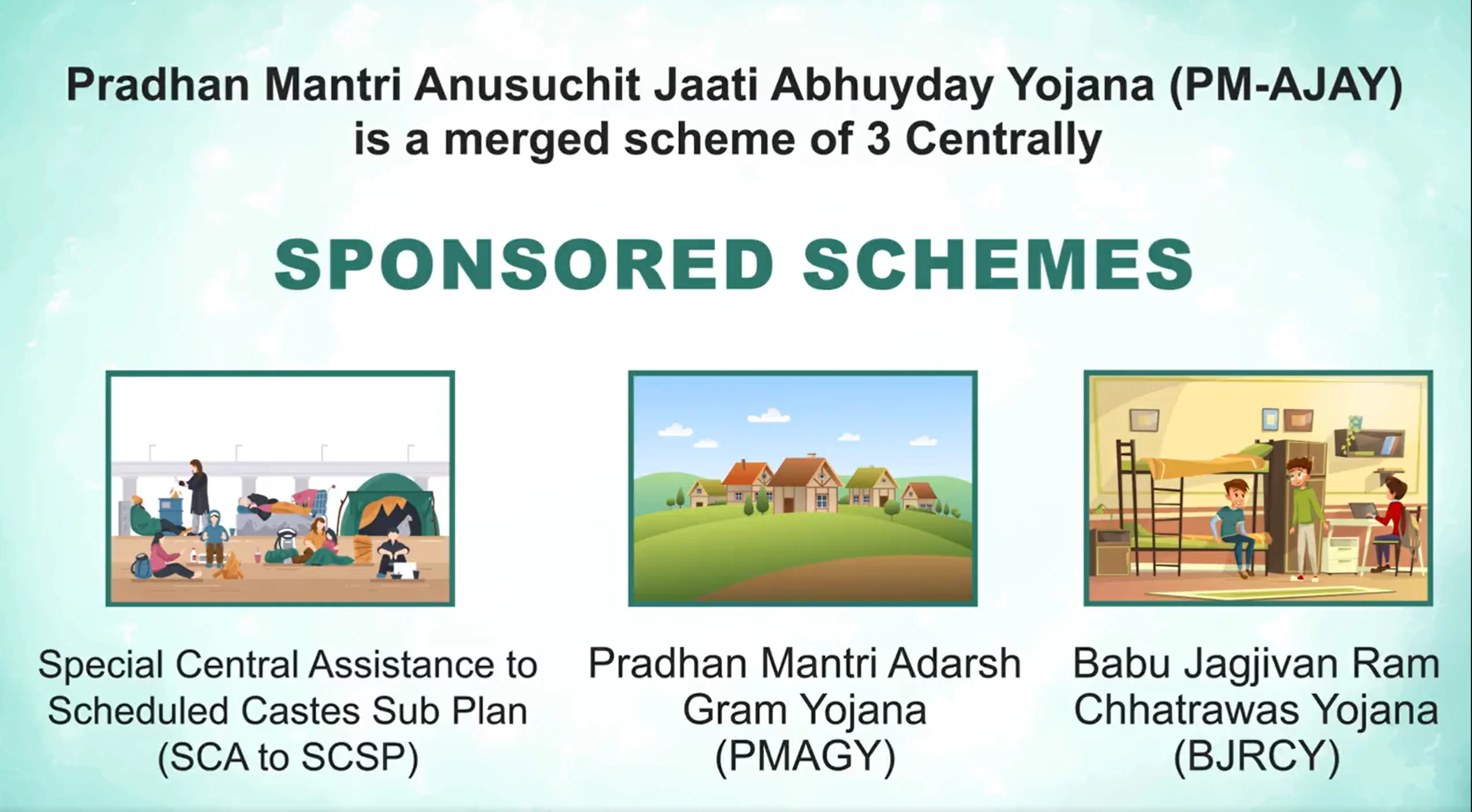
The primary objective of this scheme is to reduce poverty among Scheduled Caste (SC) communities. This is to be achieved by creating additional employment opportunities through skill development, income-generating initiatives, and other projects. The scheme also aims to enhance socio-economic development indicators in SC-dominated villages by providing essential infrastructure and necessary services. In summary, PM AJAY strives to uplift SC communities and improve their overall socio-economic well-being.
Components of the PM AJAY Scheme
The Pradhan Mantri Anusuchit Jaati Abhuyday Yojana (PM AJAY) is structured into three distinct components:
- Development of Adarsh Grams: The first component focuses on the transformation of Scheduled Caste (SC) dominated villages into a model or “Adarsh Grams.” This involves comprehensive development initiatives aimed at improving the overall quality of life in these villages.
- Grants-in-aid for District/State-level Projects: This component provides financial support for projects at the district or state level that are geared toward enhancing the socio-economic well-being of SCs. These projects can encompass various aspects, including the creation of infrastructure in SC-dominated villages (including those selected under the Adarsh Gram component), the construction of hostels or residential schools, and comprehensive livelihood projects. The latter may involve skill development programs, related infrastructure development, and financial assistance for loans taken by beneficiaries to acquire or create assets for generating livelihoods.
- Construction of Hostels in Educational Institutions: The third component involves the construction of hostels in higher educational institutions and schools. These institutions are typically those that are highly ranked according to the National Institutional Ranking Framework (NIRF) of the Government of India and receive funding from the Center, State, or Union Territory governments, either fully or partially. This component is also open to schools that are funded either fully or partially by these governments and have received recommendations from the Ministry of Education for hostel construction. The aim is to improve access to education and residential facilities for SC students.
Objectives of the PM-AJAY Scheme
The Adarsh Gram Component, formerly known as the Pradhan Mantri Adarsh Gram Yojana, has specific objectives aimed at ensuring the integrated development of villages with a majority of Scheduled Caste (SC) residents. The key objectives include:
- Adequate Infrastructure: The scheme aims to provide all the necessary infrastructure to support socio-economic development in SC-dominated villages. This includes basic amenities and services that are vital for the well-being and progress of the community.
- Improvement in Socio-Economic Indicators: The program targets the enhancement of socio-economic indicators, referred to as monitorable indicators. The goal is to eliminate disparities between SC and non-SC populations and raise these indicators to at least the national average. Specifically, the objectives encompass ensuring food and livelihood security for all Below Poverty Line (BPL) SC families, ensuring that all SC children receive education at least up to the secondary level, addressing factors leading to maternal and infant mortality, and eliminating the incidence of malnutrition, particularly among children and women. In essence, the program aims to elevate the socio-economic well-being of SC communities by addressing these crucial indicators.
About Grants-in-aid for District/State-level Projects for Socio-Economic Betterment of SCs
The “Grants-in-aid for District/State-level Projects for Socio-Economic Betterment of SCs,” which was formerly known as the Special Central Assistance to Scheduled Caste Sub Plan, is designed to promote the socio-economic development of Scheduled Castes (SCs) through grants for various types of projects. These projects aim to create a comprehensive eco-system that generates sustainable income and social advancement for SC communities. The key project categories include:
Comprehensive Livelihood Projects
These projects are meant to establish an entire system for generating sustainable income and social advancement exclusively for SCs. Projects may involve a combination of the following components:
- Skill Development: Offering skill development courses in compliance with the norms of the Ministry of Skill Development and Entrepreneurship (MSDE).
- Grants for the creation or acquisition of assets: Financial assistance is provided for loans taken by beneficiaries to acquire or create assets necessary for livelihood generation. The support is up to Rs. 50,000 or 50% of the asset cost, whichever is less, per beneficiary/household.
- Infrastructure Development: Developing infrastructure related to the project, as well as the construction of hostels and residential schools.
- Other Infrastructure: Funding various infrastructure development projects in SC-majority villages.
Special Provisions
The scheme includes special provisions, such as:
- Allocation of up to 15% of the total grants exclusively for viable income-generating economic development schemes/programs for SC women.
- Utilization of up to 30% of the total grants for infrastructure development.
- Allocation of at least 10% of the total funds for skill development.
- Promotion of SC women cooperatives engaged in the production and marketing of consumer goods and services.
These provisions are aimed at ensuring that the projects under this scheme have a significant impact on the socio-economic betterment of SC communities, including SC women, and encompass a broad spectrum of activities to foster their economic and social advancement.
Achievements
In the fiscal year 2022-23, notable accomplishments include declaring 1260 villages as Adarsh Grams under this program. Additionally, 09 new hostels have been given the green light under the Hostel component, and a perspective plan for 07 States has gained approval in the Grant-in-aid segment.
- Current Affairs January 2026 Quiz, Get Free PDF & Attempt Live Quiz
- Promoting Honesty and Integrity, Vigilance Awareness Week 2025
- India Independence Day 2025 (15th August), Theme & Significance
- Jal Jeevan Mission, Ensuring Safe and Sustainable Drinking Water
- International Day for the Eradication of Poverty 2025, Theme, History & More
- Maharishi Valmiki Jayanti 2025, History, Significance & How to Celebrate

Hello, I’m Aditi, the creative mind behind the words at Oliveboard. As a content writer specializing in state-level exams, my mission is to unravel the complexities of exam information, ensuring aspiring candidates find clarity and confidence. Having walked the path of an aspirant myself, I bring a unique perspective to my work, crafting accessible content on Exam Notifications, Admit Cards, and Results.
At Oliveboard, I play a crucial role in empowering candidates throughout their exam journey. My dedication lies in making the seemingly daunting process not only understandable but also rewarding. Join me as I break down barriers in exam preparation, providing timely insights and valuable resources. Let’s navigate the path to success together, one well-informed step at a time.
